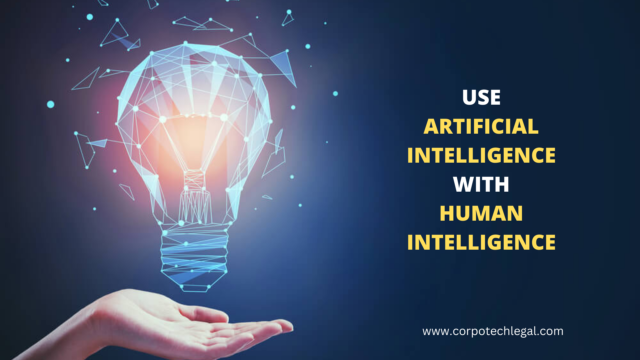Unlocking Efficiency: How AI is Transforming the Legal Landscape in India
The Indian legal landscape is embracing AI, transforming how lawyers work. From research bots to drafting assistants, AI promises efficiency, accuracy, and new insights. Analyze contracts, predict litigation outcomes, and generate persuasive arguments – all with your guidance.
However, AI comes with challenges. Ethical considerations, data privacy, and limitations on complex tasks demand responsible adoption.
This article explored AI’s impact on various legal domains, showcasing practical prompts to leverage its power. While AI empowers lawyers, human judgment and client relationships remain core. Embrace the future cautiously, and unlock the true potential of AI for Indian justice.
The main focus areas of this article are
- Impactful Use Cases: Real-world applications of AI across various legal domains.
- Essential Prompts: Practical examples of guiding questions to leverage AI effectively.
- Benefits and Challenges: Unveiling the advantages and considerations of AI adoption.
Use Cases: AI Empowering Legal Expertise
1. Legal Research & Writing:
- Fact-checking & Case-finding: AI bots can scan vast legal databases, pinpointing relevant case law, statutes, and precedents in seconds.
- Contract Review & Drafting: AI-powered tools can analyze complex contracts, identify risks, suggest edits, and even draft boilerplate clauses based on your instructions.
- Legal Opinion Generation: By processing historical cases and expert opinions, AI can assist in generating initial drafts of legal opinions, saving time and effort.
Sample Prompts:
- Summarize the key legal issues in this contract and identify potential risks. Use a notepad to convert doc text in plain text.
- Generate a clause protecting our client’s intellectual property rights.
- Compare and contrast relevant case law related to this specific legal question.
2. Due Diligence & Compliance:
- Document Review & Risk Assessment: AI algorithms can sift through mountains of documents, extracting key information and highlighting potential compliance risks or red flags.
- Data Privacy & Security: AI can help identify and manage data privacy risks within contracts and agreements, ensuring compliance with regulations like GDPR.
- Mergers & Acquisitions: AI can assist in analyzing vast quantities of financial and legal documents during M&A processes, speeding up due diligence and decision-making.
Sample Prompts:
- Analyze this set of agreements for potential data privacy violations.
- Identify any inconsistencies or ambiguities in these financial documents.
- Summarize the key regulatory requirements applicable to this merger transaction.
3. Litigation & Dispute Resolution:
- Predictive Analytics: AI algorithms can analyze historical data to predict litigation outcomes, helping lawyers strategize and negotiate settlements more effectively.
- E-Discovery & Evidence Management: AI can facilitate faster and more efficient e-discovery processes, sifting through large datasets to identify relevant evidence.
- Legal Argument Generation: AI can analyze case law and precedent to suggest potential arguments and counter-arguments, supporting lawyers in crafting persuasive legal strategies.
Sample Prompts:
- Based on current case law, what is the predicted success rate of our client’s claim?
- Generate potential counter-arguments for the opposing party’s claims.
- Summarize key arguments from similar cases that support our client’s position.
4. Client Communication & Service:
- Chatbots & Virtual Assistants: AI-powered chatbots can answer routine client questions, freeing up lawyers’ time for more complex matters.
- Document Generation & Personalization: AI can automate the generation of customized client reports, briefs, and legal documents, enhancing efficiency and client satisfaction.
- Legal Education & Resources: AI-powered platforms can offer personalized legal education and resource recommendations to clients, empowering them to understand their legal rights and options.
Sample Prompts:
- Generate a legal FAQ document addressing common client queries in this area.
- Create a personalized report summarizing the key legal aspects of our client’s case.
- Recommend relevant legal resources and articles based on our client’s specific needs.
Benefits and Challenges: Embracing the Future with Caution
While AI offers a plethora of benefits, it’s crucial to acknowledge the challenges and embrace AI adoption responsibly:
Benefits:
- Increased Efficiency and Productivity: AI automates repetitive tasks, freeing up lawyers’ time for higher-value work and client interaction.
- Enhanced Accuracy and Consistency: AI-powered tools can analyze vast amounts of data with greater accuracy and reduce the risk of human error.
- Improved Client Service: AI-driven solutions can deliver personalized, around-the-clock client support and access to legal resources.
- Democratizing Legal Services: AI tools can make legal services more accessible and affordable for a wider range of individuals and businesses.
Challenges:
- Ethical Considerations: Bias in AI algorithms and data sets can lead to unfair outcomes. Ethical guidelines and responsible development are crucial.
- Data Privacy and Security: Legal professionals must ensure client data is protected and used responsibly when engaging with AI tools.
- Limited Scope of Practice: AI cannot replace the human element of legal judgment, advocacy, and client
There are many AI tools in the market, but as a free AI resource, we prefer the Gemini tool from Google.
Note: Compiled for information by the Research Team of CorpoTech Legal, a Corporate and technology law Firm.

